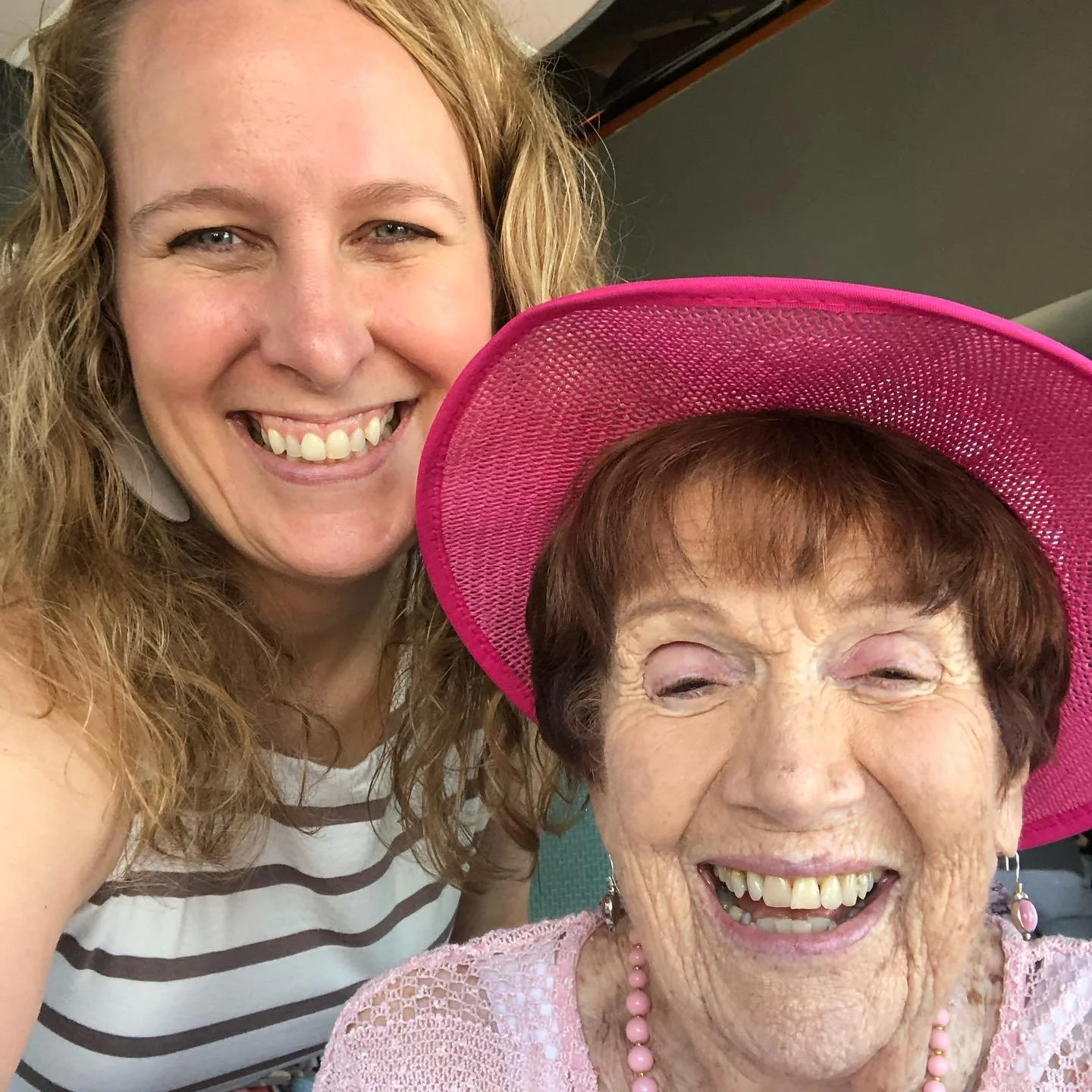Wired for this Work
Pictured above: Eloise and Dawn. Eloise has mothered many on our NorthStar staff.
by Katie Harding on May 13, 2024
Yesterday, I opened a card I received in the mail on Saturday. It was from my first babysitter, Karen, who is now in her eighties. Karen was a young woman when she and my mother first connected, and she cared for us when we needed a sitter. Karen’s mother, June, became our full-time caregiver later when my mother returned from California as a single mom of two littles. As I grew from a preschooler to a teenager to a young adult, Karen, along with her mother, attended all our family celebrations, and even though my mother passed away 23 years ago, Karen has remained present. She sends cards throughout the year reminding me I am loved and retelling stories of my mother – some things I knew and others I didn’t – letting me know my mother is still remembered by others. Karen isn’t my mother, yet I have been mothered by her more than 60 years.
Even though we celebrate Mother’s Day once a year, every day is truly a mother’s day. Each day we have the opportunity to nourish and nurture those God has brought into our lives – some are children we have birthed or adopted, and others are ones we care for in our communities, churches, and neighborhoods. We are all made to influence the next generation.
We see the truth of this statement in the life of Moses. When God tasked Moses with freeing the Israelites, He wired him with a heart for the underdog and a willingness to stand up and fight injustice. Where did this wiring come from? Was it nature or nurture? Was it something he was born with or something he developed from his life experiences? Probably both. Moses was greatly influenced by the women in his life – from the midwives who delivered him, to the mother who birthed him, to his adoptive mother who raised him. They were all willing to stand up against the oppressed. It’s no wonder we see this same trait woven into the character of Moses.
The midwives were commanded by Pharaoh to put the Hebrew baby boys to death. “But the midwives feared God and did not do as the king of Egypt had commanded them, but let the boys live.” They were willing to take a stand against injustice.
Since the midwives thwarted Pharoah’s plans, Pharoah instructed his people to cast the Hebrew sons into the Nile and save the daughters. However, Moses’ birth mother decided to circumvent the order and put her son in the Nile herself, her way. After hiding him in her home for a bit, she placed him in a protected basket among the reeds at the river, praying his life would be preserved. She too, fought for the underdog, who in this instance was her son.
When Moses was discovered by none other than Pharaoh’s daughter, we come to understand where Moses derived much of his wiring to face oppression. Not only did she totally refuse to obey her father’s order, but she saved a baby from the river and brought him home as her son. And to continually remind her father that she stood against his order of casting little boys into the water, she named him Moses, meaning “I drew him out of the water.” It was like saying “I saved that which you were trying to destroy.” She stood strong and acted to free the oppressed.
All three of these women mothered Moses in their own unique way. All three influenced him greatly by standing for what was right and taking sacrificial actions to bring about change. This is how Moses came to have the raw materials God could shape and use to set a whole nation free.
Like Moses, I’ve had many women who have mothered me along life’s journey. Some mothered physically, helping me to navigate life’s challenges, and others mothered me spiritually, encouraging growth in my relationship with Jesus and my knowledge of God’s Word. Yet, all these women greatly influenced the woman I am today because they all mothered me in one way or another. Whether we give birth to a child, adopt them, neighbor them, or care for them in a class, we all have the ability to be a “mother” – an influencer – in another person’s life. We, too, are wired for this work.

